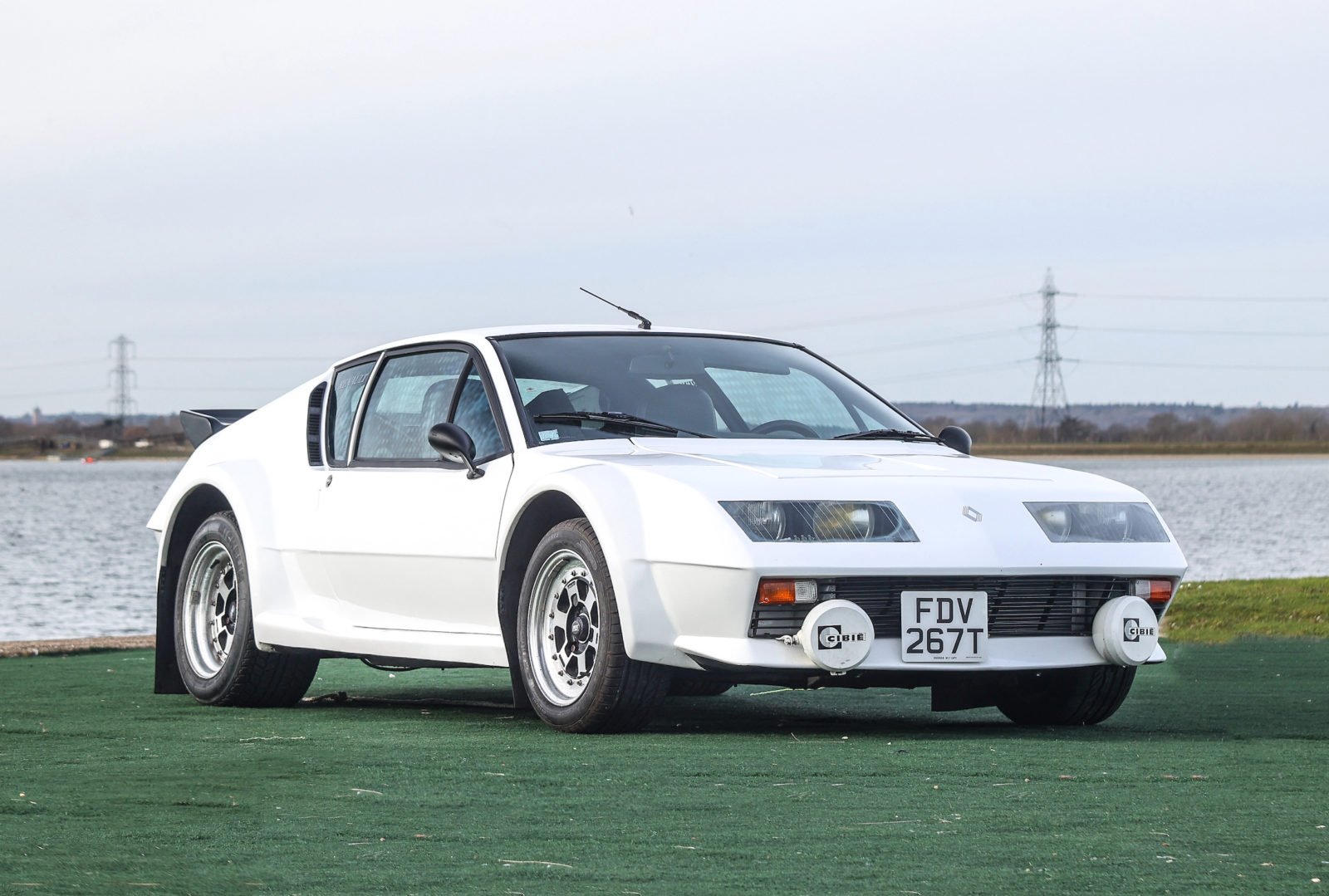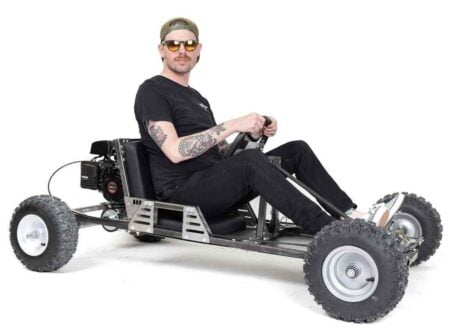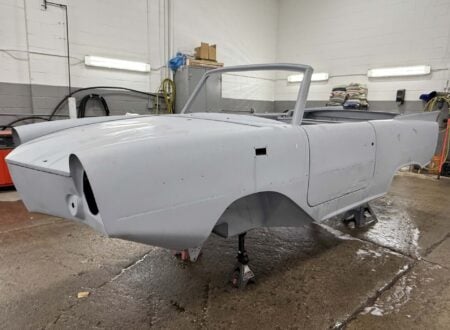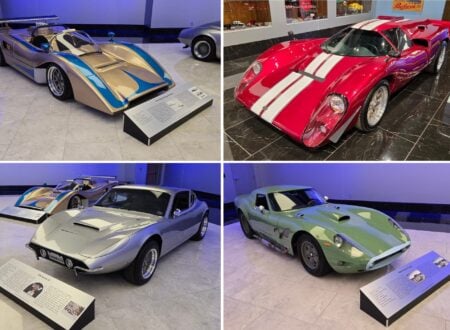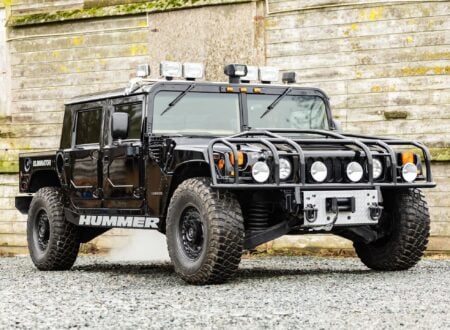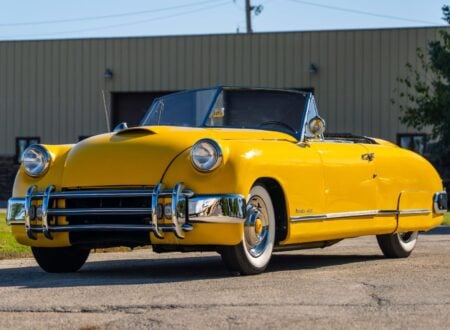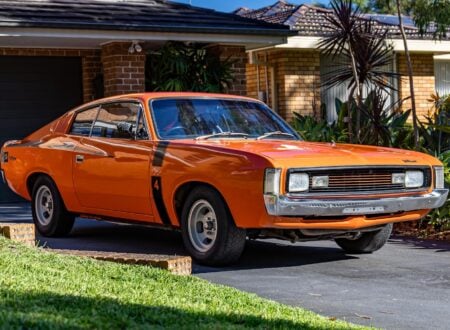The Alpine A310 V6 was the considerably more powerful descendant of the earlier Alpine A310 four-cylinder model – a car that had been lauded for its looks and engineering but criticized for its low power output.
The A310 V6 solved this power deficit problem once and for all thanks to its new rear-mounted 2.7 liter PRV V6 engine producing 148 hp and pushing the A310 on to a top speed of 220 km/h (137 mph). With this engine the performance of the car finally matched its looks.
Fast Facts – The Alpine A310 V6
- When the Alpine A310 was first released in 1971 it had very large shoes to fill, it was to be the replacement for the legendary Alpine A110 – the World Rally Championship winning car that claimed countless race wins in rallies and circuit races across Europe.
- The A310 featured an all-new design to better capture the style of the 1970s, though its architecture was closely related to its forbear – they both have tubular steel back bone chassis, rear-mounted engines, and lightweight fiberglass bodies.
- The design of the new A310 was universally acclaimed when it was released in 1971, but no one could understand why it had been fitted with the underpowered Renault 17TS/Gordini four-cylinder engine producing approximately 125 bhp.
- Alpine answered this criticism in 1976 with the release of the A310 V6, now powered by the more powerful PRV 2.7 liter V6 producing 148 bhp at 5,500 rpm and 161 ft lbs of torque at 3,000 rpm.
The Alpine A310 – A New Car For A New Decade
When the Alpine A310 was introduced in 1971 it had the unenviable task of replacing the Alpine A110 – one of the most successful rally cars of its age and a vehicle with styling loved by all.
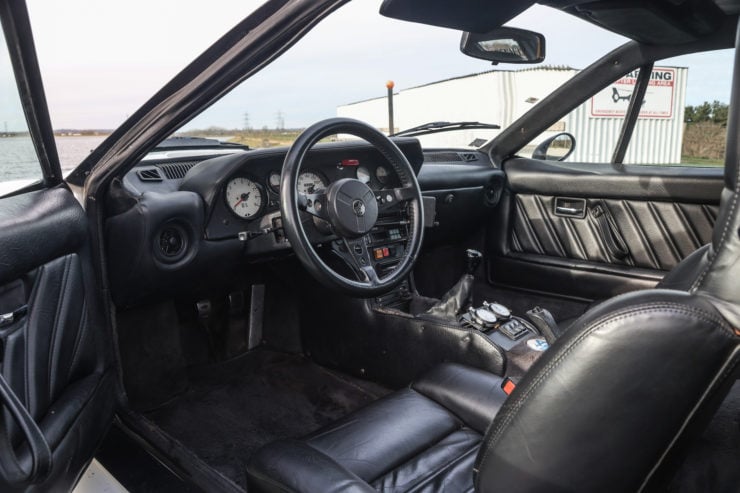

As is often the case with sequels, it didn’t go well. At least at first. Considering the fact that Alpine had developed the A310 to compete with the Porsche 911, they didn’t quite get the engine right – opting for the familiar but underpowered 1.6 liter Renault 17TS/Gordini four-cylinder unit.
Even in highly-tuned form this engine was only turning out 125 bhp, and it lacked the torque needed to really get the A310 moving at the speed its styling suggested it was capable of.
The Alpine A310 V6: More Power = More Speed
The 1976 Alpine A310 V6 would receive some styling updates to distinguish it from its sibling, but the most important update was in the engine compartment around the back. The newly-developed 2.7 liter PRV V6 had been fitted along with a 5-speed gearbox
The PRV V6 had been developed as a joint-project between Peugeot, Renault, and Volvo – or P.R.V. This V6 was used extensively by a number of automakers including Alpine of course, the DeLorean DMC-12 was also powered by one, as was the Eagle Premier/Dodge Monaco, Volvo 260, Peugeot 504, Renault 25 V6 Turbo, and many others.
The 2.7 liter version of the PRV V6 fitted to the Alpine A310 V6 was producing 148 bhp at 5,500 rpm and 161 ft lbs of torque at 3,000 rpm – more than enough to really get the lightweight fiberglass-bodied car moving, with a new top speed of 220 km/h (137 mph).
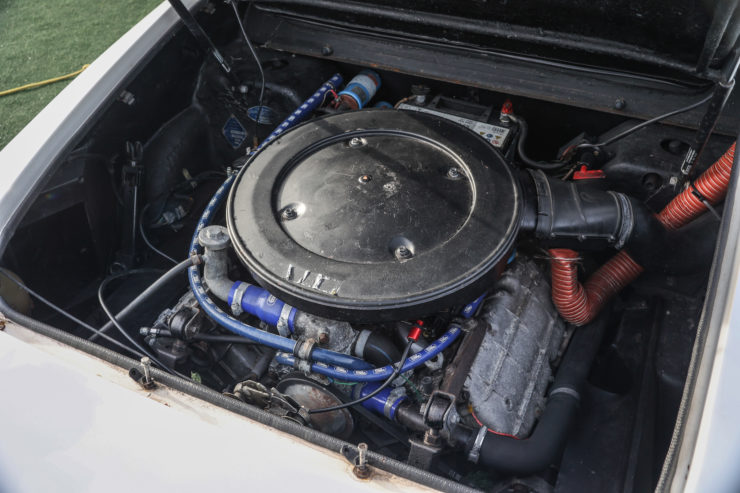

This combination of a car with race-bred handling, a low kerb weight of 980 kgs (2,161 lbs), and a capable engine proved successful both on the showroom floor and on the track. Sales of the A310 began to increase, reaching 781 in France for 1979, its best sales year ever.
A year after its introduction in 1977 the A310 V6 would win both the French Rally Championship and it saw great success French motorsport as a Group 4 car.
Alpine kept the A310 V6 in production from 1976 until 1984, updating it and improving it incrementally over time. Today it remains relatively rare when compared to many sports cars of the era, and thanks to its use of largely Renault mechanical parts and that mass-produced PRV engine, it’s easy to source parts when needed.
The 1978 Alpine A310 V6 Shown Here
The car you see here is a 1978 model, just the second year to get the PRV V6 engine. The car is, fittingly, painted in Alpine White and it has a black leather interior which was re-trimmed by a Renault specialist a few years ago.
Interestingly this car has a few additions that imply it may have been used in amateur rally, including twin stopwatches and a timing device on there dashboard and the addition of those dual Cibie spotlights up front.
This Alpine is due to roll across the auction block with Historics in the UK on the 12th of March. If you’d like to read more about it or register to bid you can click here to visit the listing.
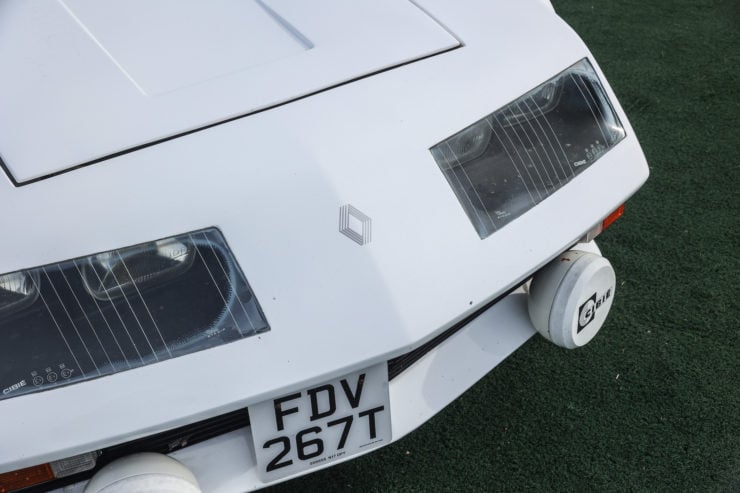
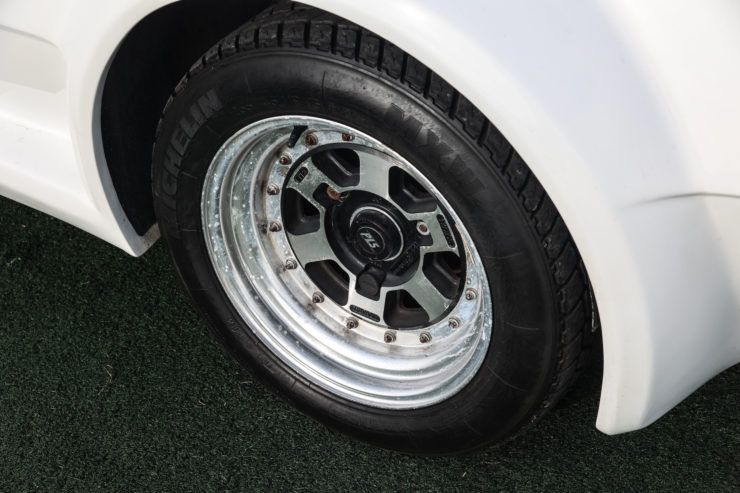
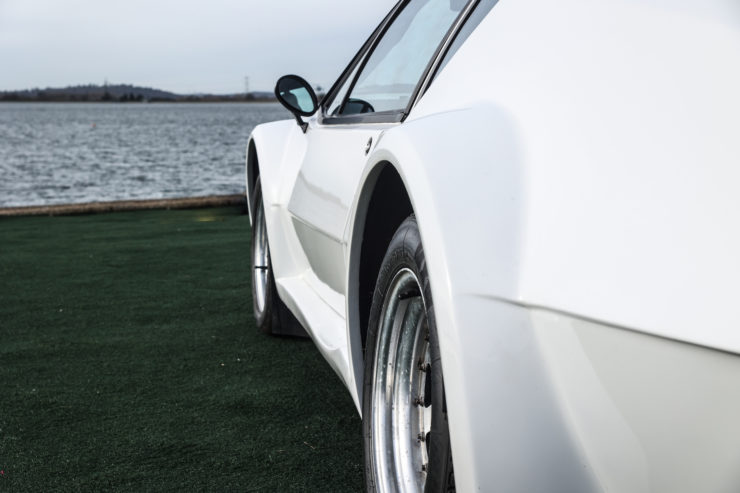
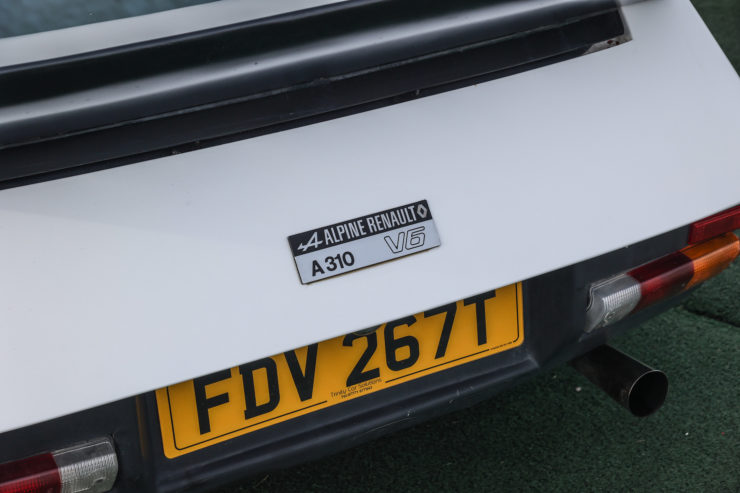
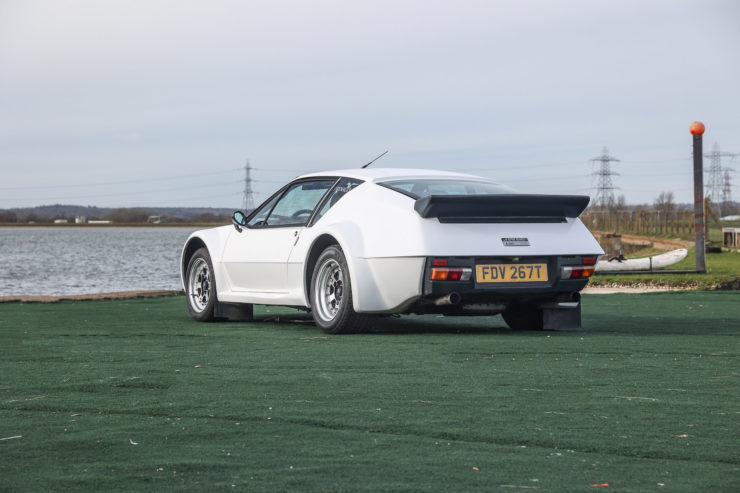
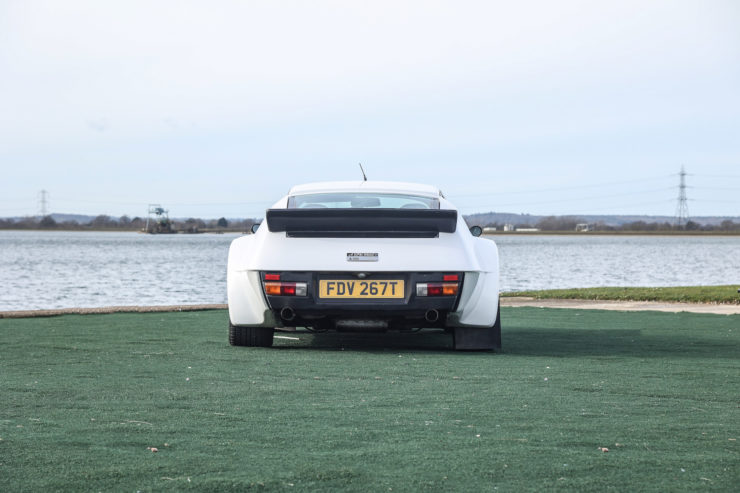
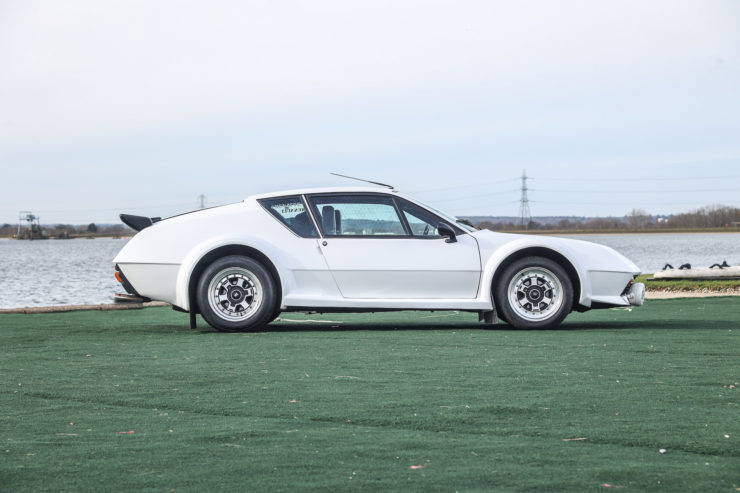
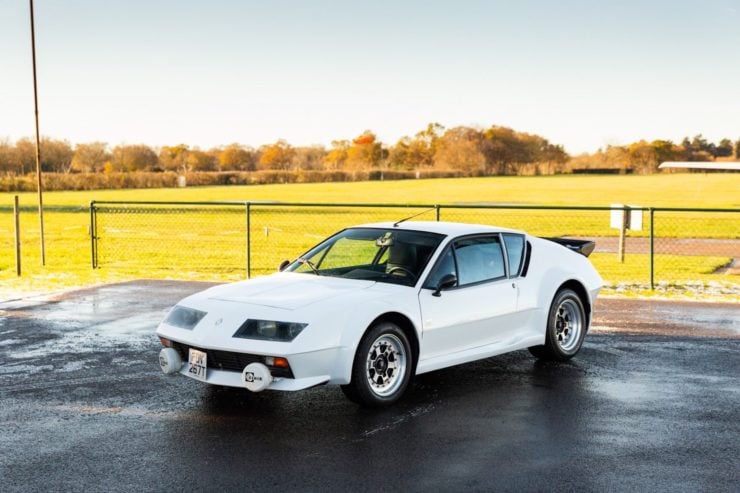
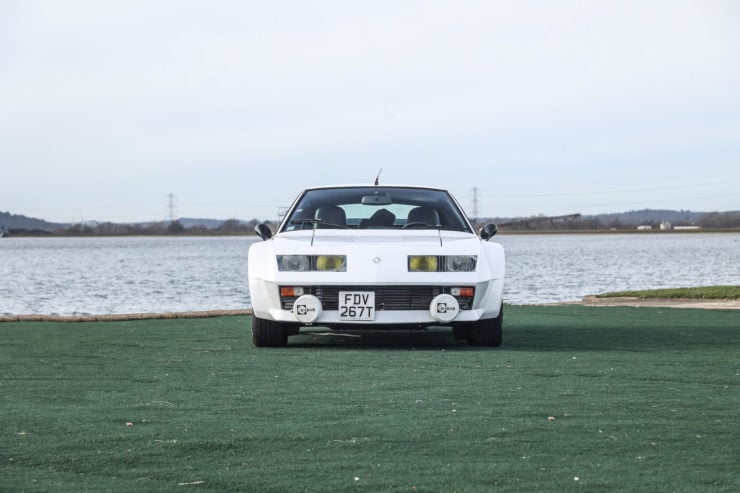
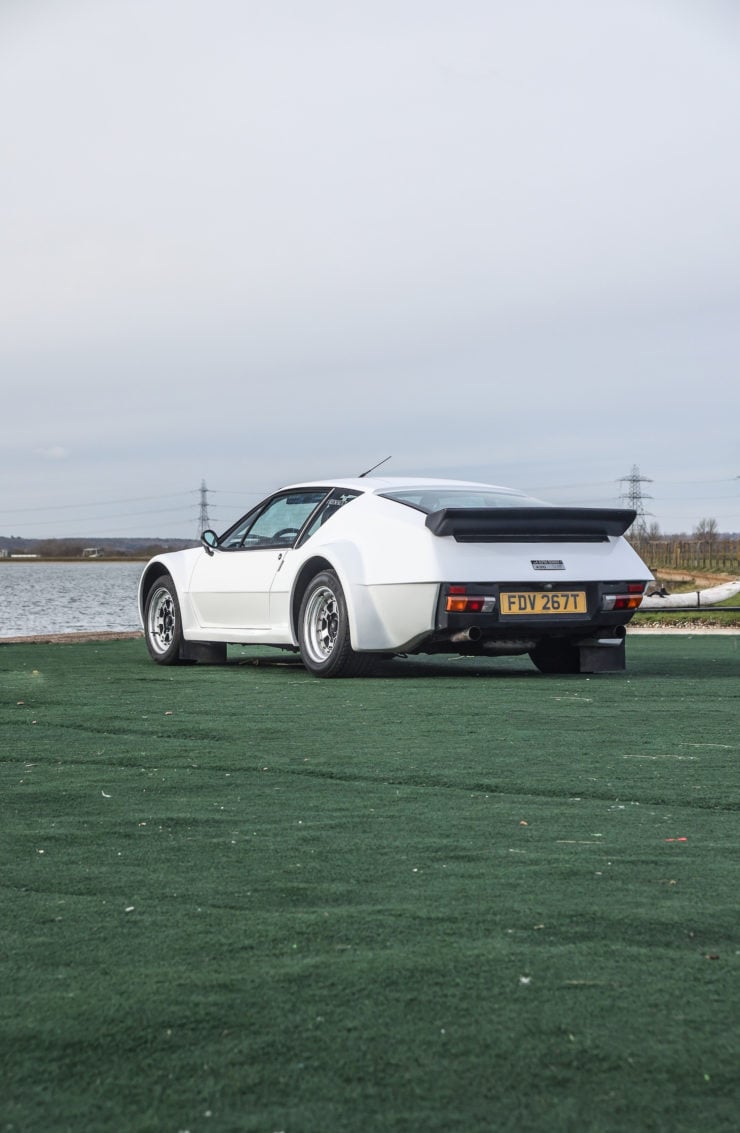
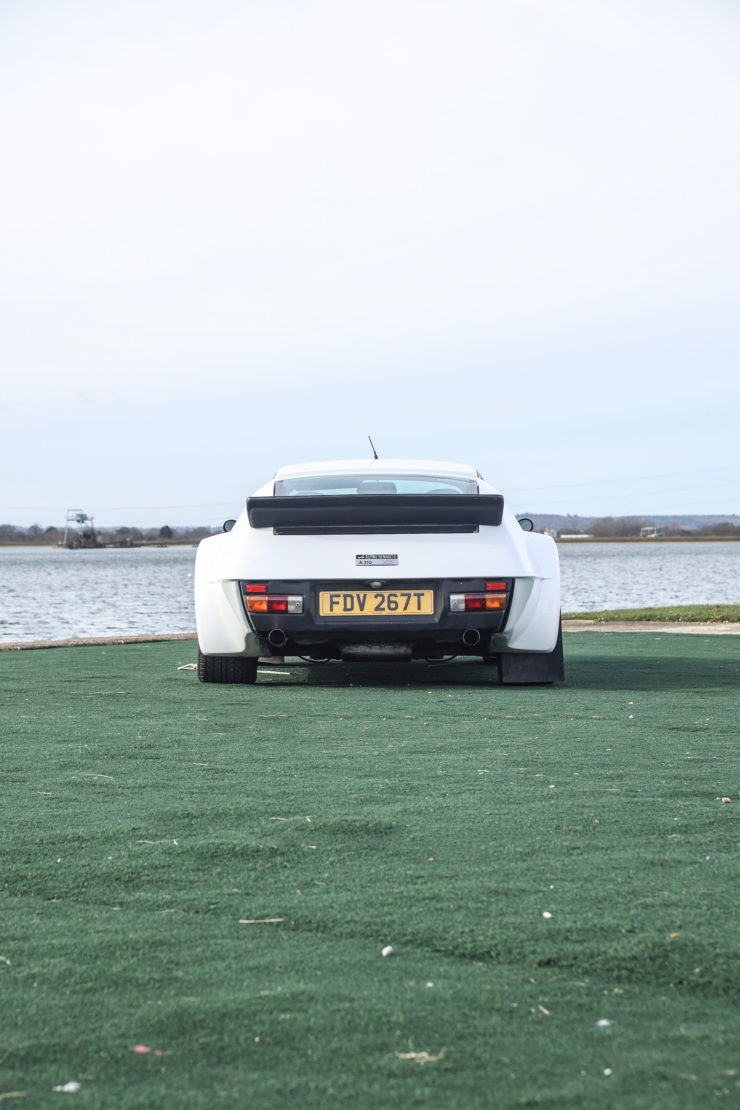
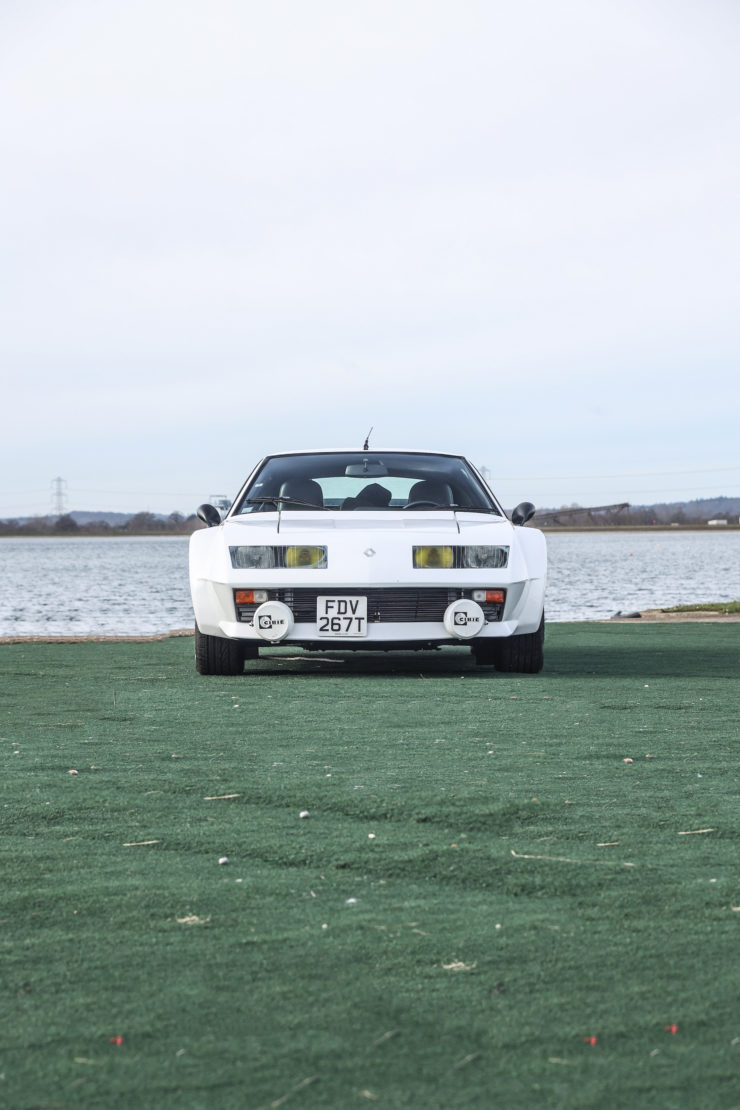
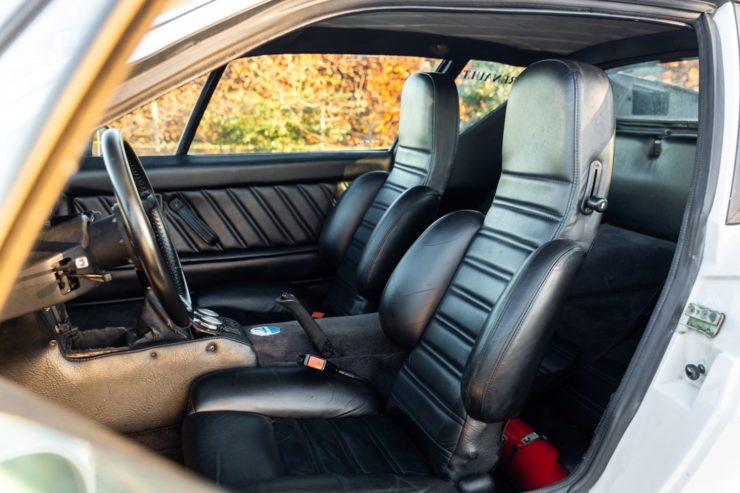
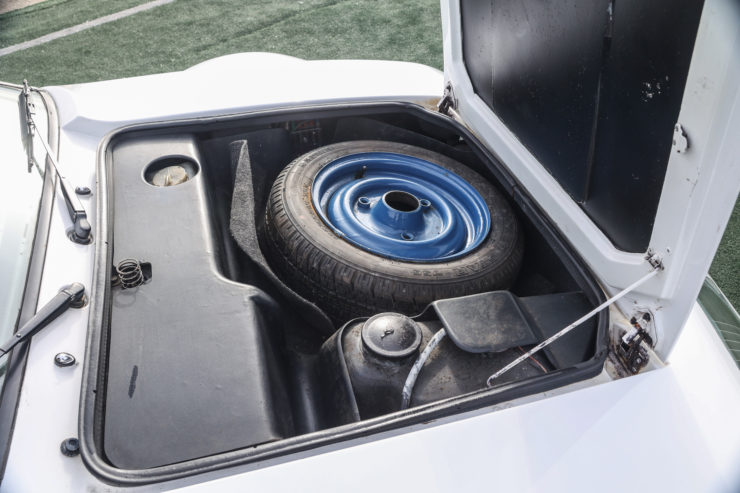
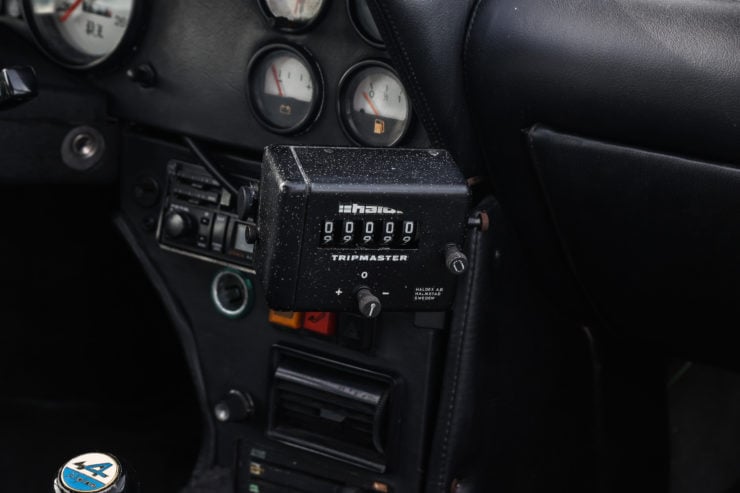
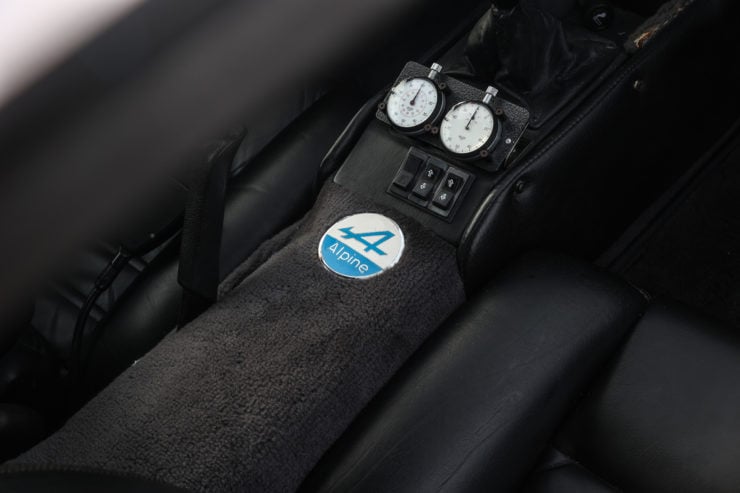
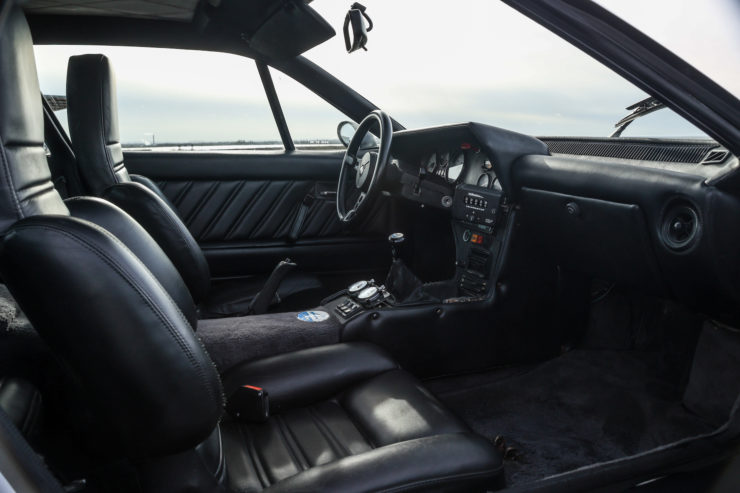
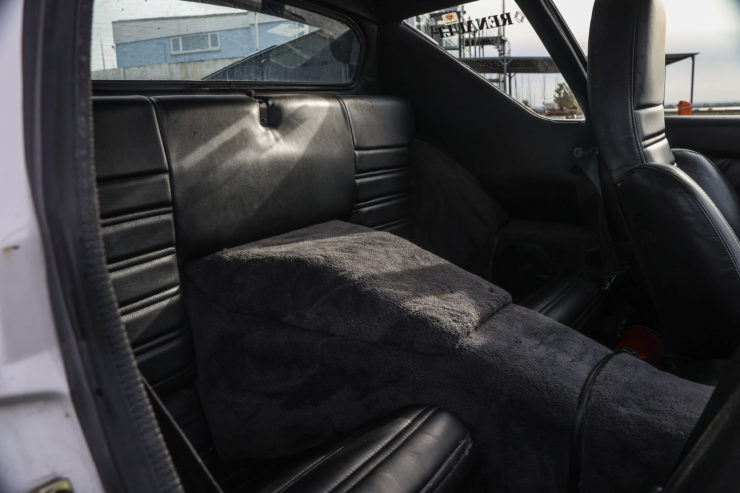




Images courtesy of Historics

